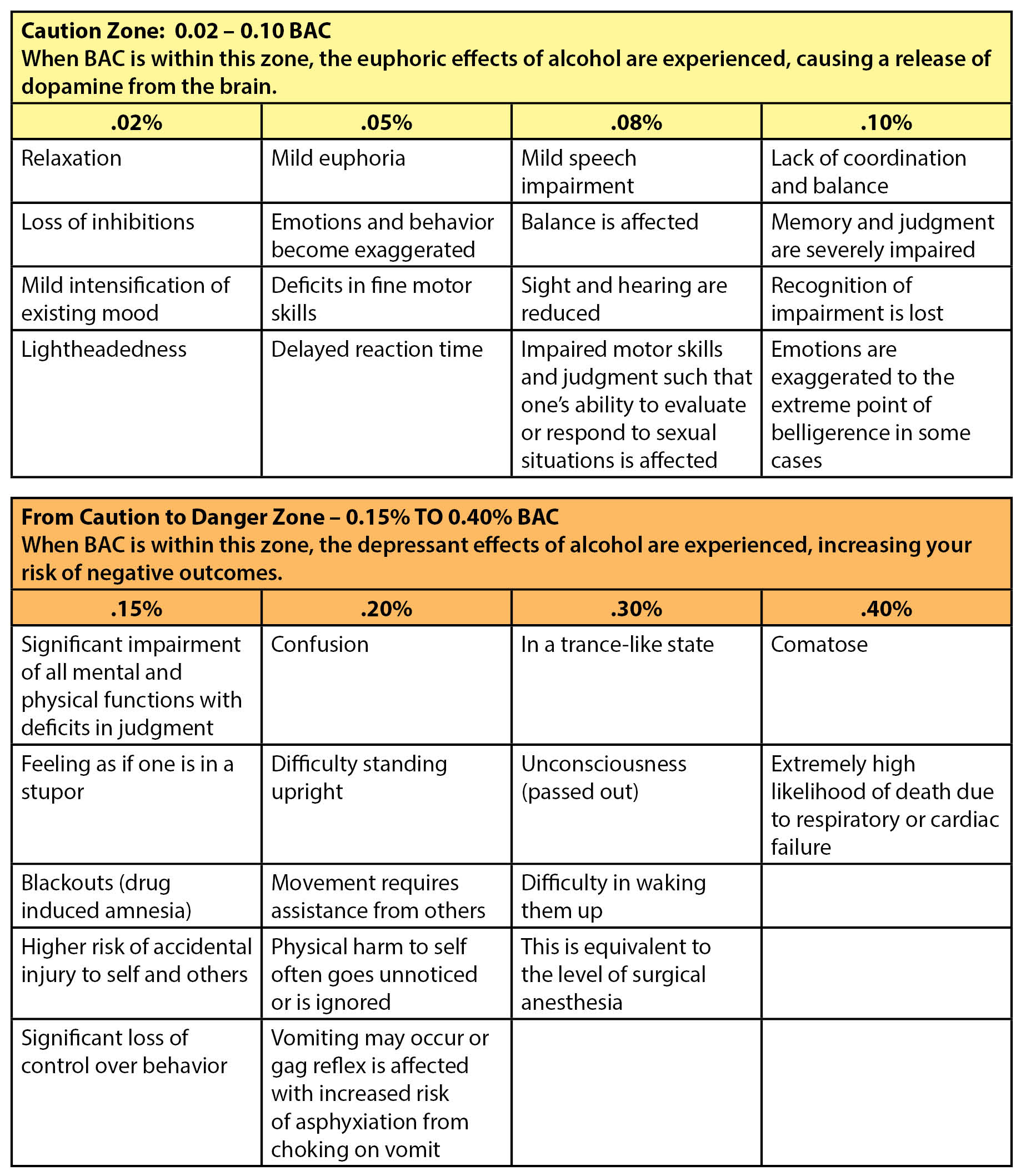 Blood Alcohol Concentration (BAC)
Blood Alcohol Concentration (BAC)
BAC is the amount of alcohol that is present in the bloodstream. For example, having a BAC of 0.10 percent means there is about one drop of alcohol for every 1,000 drops of blood present in the body. At certain BAC levels, alcohol alters a person’s visual functions and perceptions, affecting the ability to react, concentrate or pay attention, process information, and drive a vehicle.
Characteristics that influence alcohol’s effect
The way a person reacts to alcohol depends on several factors, including:
-
Composition of the drink
Drinks have different effects based on their composition. For example, a drink mixed with carbonated soda speeds up effects of the alcohol due to the carbonation bubbles.
-
Rate of consumption
Taking shots or chugging drinks increases the amount of alcohol absorbed into the system. The liver metabolizes alcohol at an average rate of one standard drink per hour. If a person drinks faster than this, the remainder of the alcohol circulates in the bloodstream until the liver metabolizes all of the alcohol.
-
Body weight
People who weigh less will generally be affected more quickly by alcohol than people who weigh more. This is because people with a greater body weight have more blood and water in their bodies, which assists in the dilution of alcohol.
-
Food
A full stomach slows the absorption of alcohol into the bloodstream. Drinking on an empty stomach, however, will cause the BAC to rise more rapidly since there is no food to assist in absorption.
-
Females and alcohol
Females tend to reach a higher BAC faster because they have a higher fat-to-muscle ratio than males. Fat repels alcohol, whereas muscle absorbs it. Therefore, it takes less alcohol for a female to show signs of its effects.
-
Drug use
The use of other legal or illegal drugs can increase the effects of alcohol and may cause a dangerous, unpredictable outcome.
BAC levels and how they can affect you



